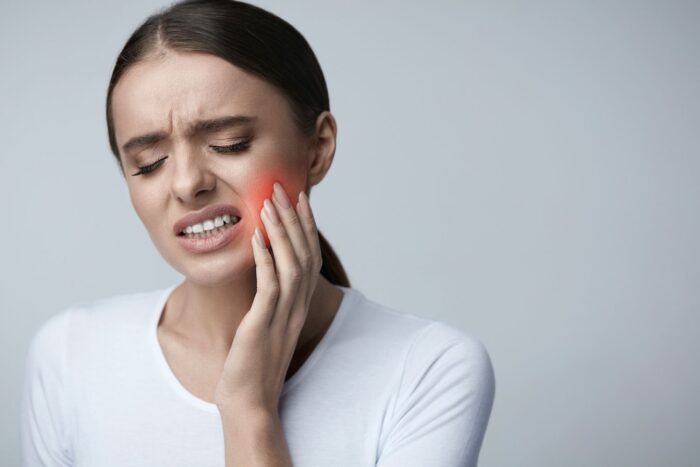Have you ever woken up with a sore jaw or noticed an unusual wear pattern on your teeth? If so, you might be experiencing bruxism. This is a common, yet overlooked condition when someone grinds their teeth. Over time, grinding your teeth can cause significant damage to your oral health. Luckily, there are several practical ways you can prevent it and protect your teeth.

Understanding Bruxism
Teeth grinding involves the involuntary clenching or grinding of teeth. Typically, this will occur during sleep. This means that some people are unaware of the behavior. While some may grind their teeth due to stress or anxiety during the day, night-time grinding is a common culprit.
The Toll on Tooth Enamel
One of the primary concerns with bruxism is the gradual erosion of tooth enamel. Enamel, the protective outer layer of your teeth, should withstand normal biting and chewing forces. However, the persistent grinding action can wear down enamel. As a result, this can lead to increased tooth sensitivity, cracks, and a higher risk of cavities.
Enamel Erosion
As teeth grind against each other, a process called erosion occurs. This continuous friction can result in flattened, chipped, or even fractured teeth. The impact of erosion extends beyond looks. In fact, it can affect your bite and potentially cause jaw pain and discomfort.
Strained Jaw Muscles and TMJ Issues
Teeth grinding doesn’t only affect your teeth. It can also strain the muscles responsible for jaw movement. This strain may lead to temporomandibular joint (TMJ) issues. This condition can cause pain, clicking sounds, and difficulty opening or closing your mouth. Long-term bruxism can contribute to the development of chronic TMJ disorders.
Recognizing the Signs of Bruxism
How do you know if you’re grinding your teeth? Look out for these signs:
- Morning jaw pain or stiffness
- Frequent headaches, especially in the morning
- Worn-down tooth surfaces
- Increased tooth sensitivity
- Disrupted sleep patterns
If you notice any of these signs, it’s crucial to address the issue promptly to prevent further damage.
Prevention Strategies for Bruxism
The good news is that bruxism is manageable. There are effective preventive measures you can take:
Night Guards: Your dentist can create a custom night guard to protect your teeth from grinding during sleep. This device provides a cushion between your teeth to prevent grinding.
Stress Management: Since stress is a common trigger for teeth grinding, finding healthy ways to manage stress can be beneficial. For example, exercise or relaxation techniques are common ways to help with stress.
Position Changes: Sleeping on your side rather than your back may reduce the likelihood of grinding.
Limiting Stimulants: Cutting back on caffeinated beverages and avoiding stimulating substances close to bedtime may help reduce bruxism episodes.
Seeking Professional Help
If you suspect you’re grinding your teeth, don’t hesitate to consult with your dentist. They can also assess the extent of the damage and provide personalized advice on prevention. Furthermore, they can suggest the best treatment options for you.
